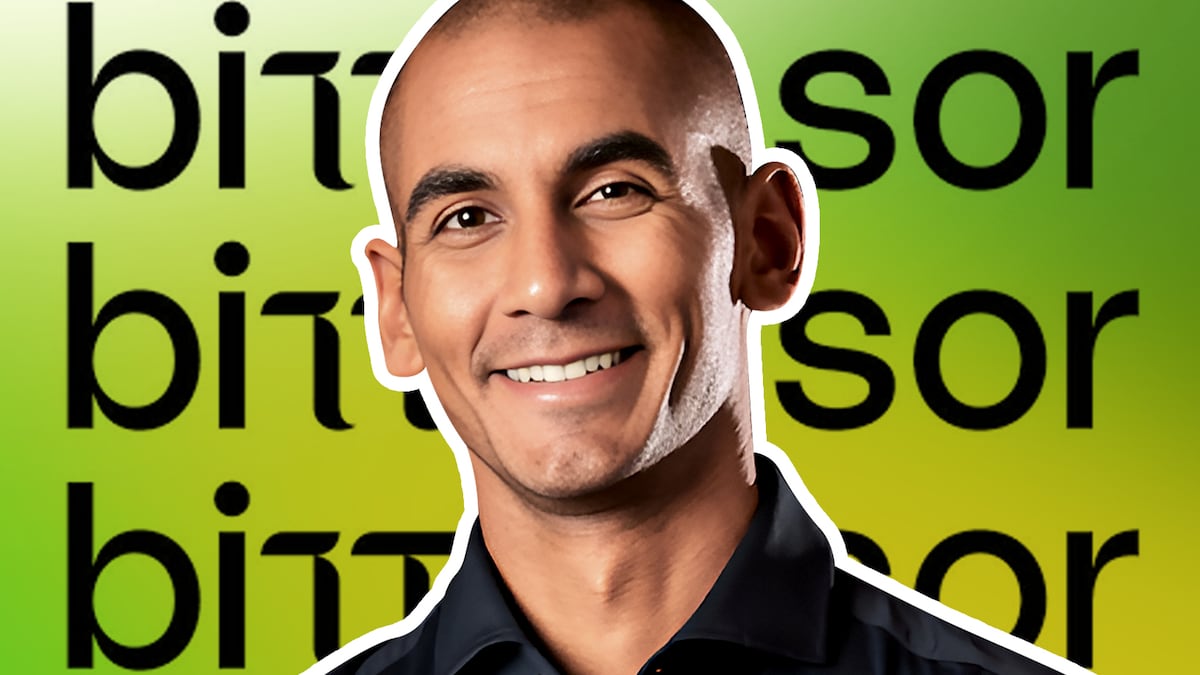- WonderFi's founder has started a new company.
- It will buy Bittensor's TAO token for its corporate treasury.
- The firm has raised $22.8 million from investors.
Karia Samaroo likes to start companies.
The Canadian entrepreneur has previously founded a crypto-focused investment bank, a project designed to detect deepfakes, and the crypto services firm WonderFi, which fintech giant Robinhood agreed to acquire for $182 million in May.
For Samaroo’s next venture, he’s going all-in on a fledgling project called Bittensor, a blockchain network designed to offer an alternative to centrally controlled artificial intelligence powerhouses like OpenAI and Google.
“It was like when I first found Bitcoin and saw the problem that it was trying to solve,” Samaroo told DL News in an interview. “It’s the best shot on goal that we have for decentralised AI.”
New firm
Samaroo is backing Bittensor through xTAO, a new firm which he founded in December.
On Monday, the Cayman Islands-domiciled company announced the raise of $22.8 million from venture investors including Animoca Brands, Digital Currency Group, and FalconX, among others.
The firm will use a portion of the funds to buy TAO, Bittensor’s native token, to keep in its corporate treasury.
Bittensor launched its blockchain network and the TAO token in 2021.
In late 2023, TAO surged 1,400% amid a wave of AI interest, and hit an all-time high of $757 the following March. The token has since retraced and trades at around $424, with a market value of just over $4 billion.
Crypto treasury craze
The news comes as crypto treasury companies explode in popularity. Yet with the increased attention, some are also starting to question them.
Famed short seller Jim Chanos recently compared the hype surrounding Bitcoin treasury firms to the SPAC mania of 2021, which raised $90 billion in just three months before crashing.
Others, such as Bloomberg News opinion columnist Matt Levine, have observed how holding crypto through a public company increases its value with investors.
“The basic situation is that US public equity markets will pay about $2 for $1 worth of Bitcoin. I don’t know why this is, and I am not especially happy about it, but it’s true,” Levine said.
As for Bittensor, there are already three other publicly traded firms that hold over $1 million worth of TAO on their books.
Samaroo said xTAO will set itself apart from them by also helping build, support, and scale the Bittensor ecosystem.
10% return
The firm will stake its TAO for a 10% return and operate validators on the network, an activity which also generates revenue. There are also plans to provide clients access to products created on Bittensor through APIs and licensing agreements.
“We’re a treasury company, but we’re really trying to shift away from that, because I think there’s a lot more that we can do,” Samaroo said.
Why Bittensor?
Samaroo said his support for Bittensor stems from his belief in AI. “This is going to be the most powerful tool that humanity ever creates, and maybe the last one,” he said.
But like many others, he’s worried that a small group of powerful, well-funded companies currently have a monopoly on the most powerful AI models.
Bittensor supporters say it is the answer to AI’s centralisation problem. The network allows anyone to contribute their computing power to AI applications called subnets. In return, they are rewarded with valuable TAO tokens, similar to how the Bitcoin blockchain rewards those who process transactions with new Bitcoins.
Supporters say Bittensor’s decentralised model has a shot at competing with established AI firms because it isn’t limited by the amount of money it can raise, as traditional firms are.
Bittensor may be more decentralised. But it is also affected by the same issues that have landed AI companies in hot water, primarily concerning copyright infringement related to how their AI models are trained and the content they generate.
In December 2023, The New York Times sued OpenAI for allegedly using the newspaper’s articles to train its ChatGPT chatbot without permission or compensation.
Last month, Disney and Universal also sued Midjourney, calling the firm’s AI-powered image generator a “bottomless pit of plagiarism” for its alleged reproductions of the studios’ best-known characters.
Samaroo said some of Bittensor’s subnets have mechanisms in place to tackle issues with training data. However, because the network is decentralised, it may also be difficult to enforce best practices among everyone contributing to it.
Market risk
Betting on Bittensor is especially risky because it’s at the intersection of arguably the two most hyped industries in recent years: crypto and AI.
The crypto market is known for its extreme volatility. Dozens of analysts, including Apollo Global Management chief economist Torsten Sløk, have warned that the excitement surrounding AI technology is a bubble waiting to burst.
Samaroo said xTAO is set up so it can withstand a 70% drawdown in the TAO token. The firm will keep cash on its balance sheet and forego using leverage to juice the amount of TAO it can acquire.
“I want to make sure that we have that runaway for the situation of an extended bear market,” he said. “Having gone through a few crypto winters, I think the most important thing is that this just stays alive.”
Tim Craig is DL News’ Edinburgh-based DeFi Correspondent. Reach out with tips at tim@dlnews.com.


